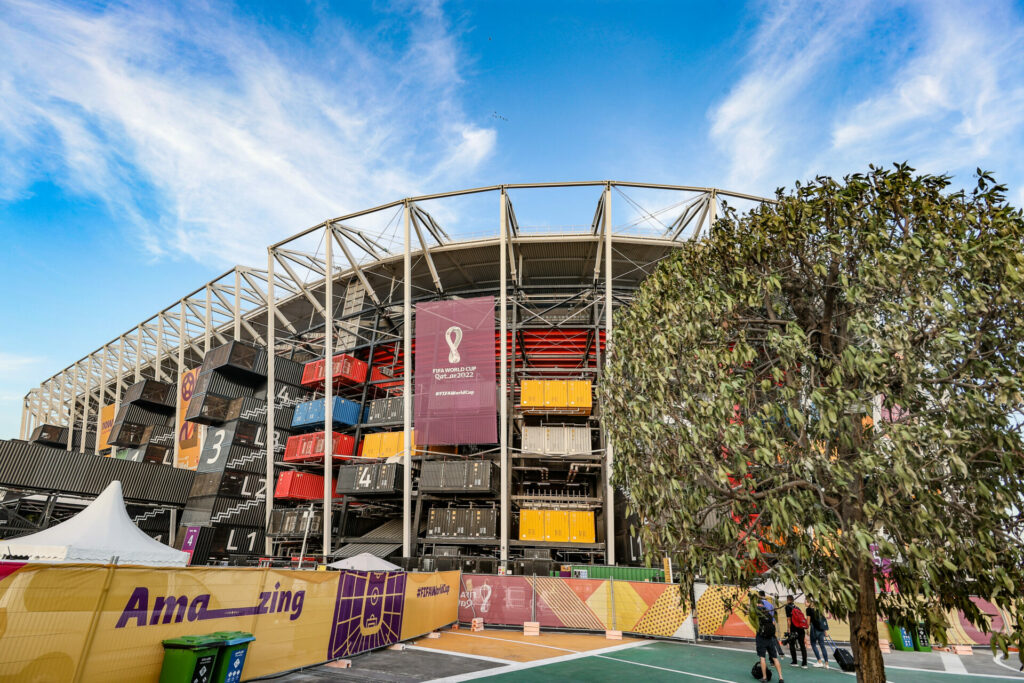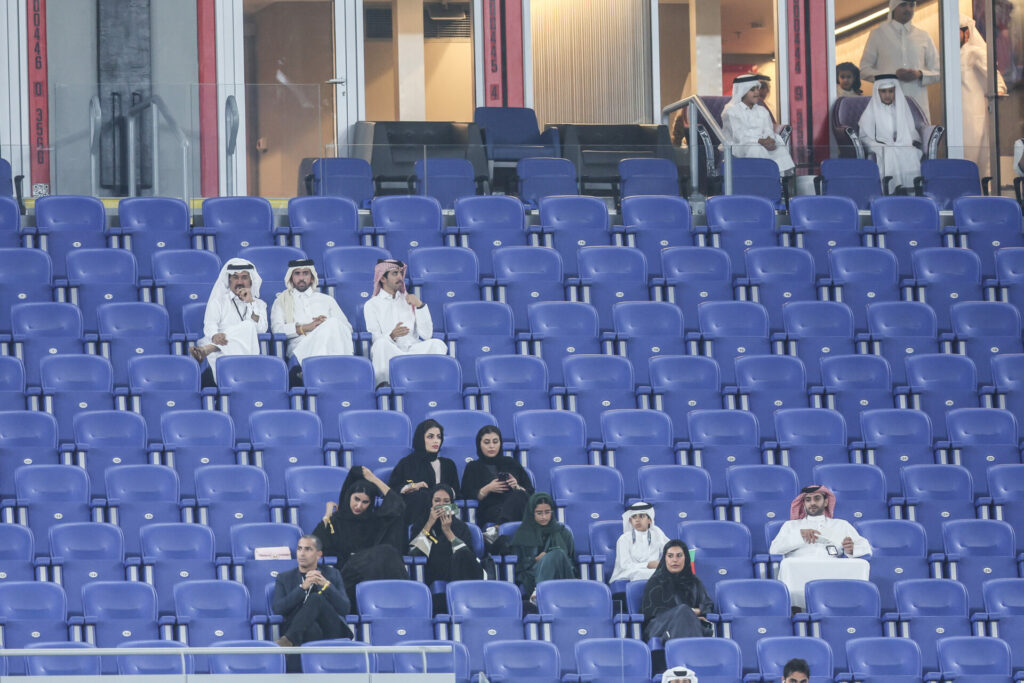As the controversial 2022 World Cup kicked off, the European Parliament on Thursday condemned the deaths of thousands of migrant workers in Qatar, adopting a resolution which states that FIFA should compensate the families of those who died in preparation for the tournament.
With an estimated more than 2 million migrants making up some 94% of Qatar's workforce, the resolution welcomes the fact that the country's government has reimbursed $320 million to wage abuse victims through the so-called “Workers’ Support and Insurance Fund," according to the International Labour Organisation (ILO).
However, as many workers in Qatar and their families have been excluded from its scope, MEPs are calling for the fund to be extended to include "all those affected since the work related to the FIFA World Cup began, covering also workers’ deaths and other human rights abuses."
In recent years, thousands of migrant workers from India, Pakistan, Nepal, Bangladesh and Sri Lanka worked in appalling conditions on the stadiums and infrastructure that made the World Cup in Qatar possible. Last year, The Guardian reported that at least 6,500 people died in the process of constructing venues for the event.
Official figures by the International Labour Organisation (ILO) also speaks of 50 death in 2020 alone. The Qatari government, however, sticks to its "official" figure of three fatalities – which all three took place at the construction sites of Belgian construction company Besix.
MEPs also call on FIFA to contribute to "a comprehensive remediation programme" for workers’ families as compensation for the conditions to which they have been subjected, and urge the Qatari authorities to conduct full investigations into the deaths of migrant workers and compensate families in cases where workers died as a result of their working conditions.
In the resolution on the human rights situation in Qatar adopted by the EU Parliament on Thursday, MEPs also highlighted that the country won the FIFA World Cup bidding process "amidst credible allegations of bribery and corruption."
Sportswashing
They described the corruption within FIFA as “rampant, systemic and deep-rooted," and deplored that the process to award the football World Cup to Qatar in 2010 was "not transparent" and "lacked responsible risk assessment."
Parliament also urges EU countries, particularly those with large national football leagues – such as Germany, France, Italy, and Spain – to exert pressure on UEFA (Union of European Football Associations) and FIFA to fundamentally reform and introduce "democratic and transparent procedures" when awarding football World Cups – while also strictly implementing human rights and sustainability criteria for hosting countries.

Stadium 974 at the FIFA 2022 World Cup in Doha, State of Qatar on Thursday 24 November 2022. Credit: Bruno Fahy / Belga
To protect athletes and fans and put an end to 'sportswashing' (in which companies and/or governments use sports to improve their reputations tarnished by wrongdoing), international sporting events should not be awarded to countries in which fundamental and human rights are persistently violated, and where systematic gender-based violence is prevalent.
Related News
- World Cup: What about labour rights in Qatar?
- Belgian Foreign Minister wears 'One Love' armband during Red Devils game
- 'Red card for FIFA': Red Devils urged to take a stand for LGBTQ rights
Additionally, MEPs deplore the abuse perpetrated by the country’s authorities on the LGBTQ community, including the use of domestic laws that allow for members of the LGBTQ community to be provisionally detained without charge or trial for up to six months.
The issue has gained a lot of interest in recent days, particularly due to the fact that FIFA forbade the team captains of seven European teams – including Belgium – from wearing the 'One Love' armband, which was supposed to make a statement against discrimination and in defence of LGBTQ rights.
The resolution also urges Qatar to strengthen gender equality measures, including abolishing the remnants of the women's guardianship, while stepping up efforts to increase the representation of women in the formal labour market.

